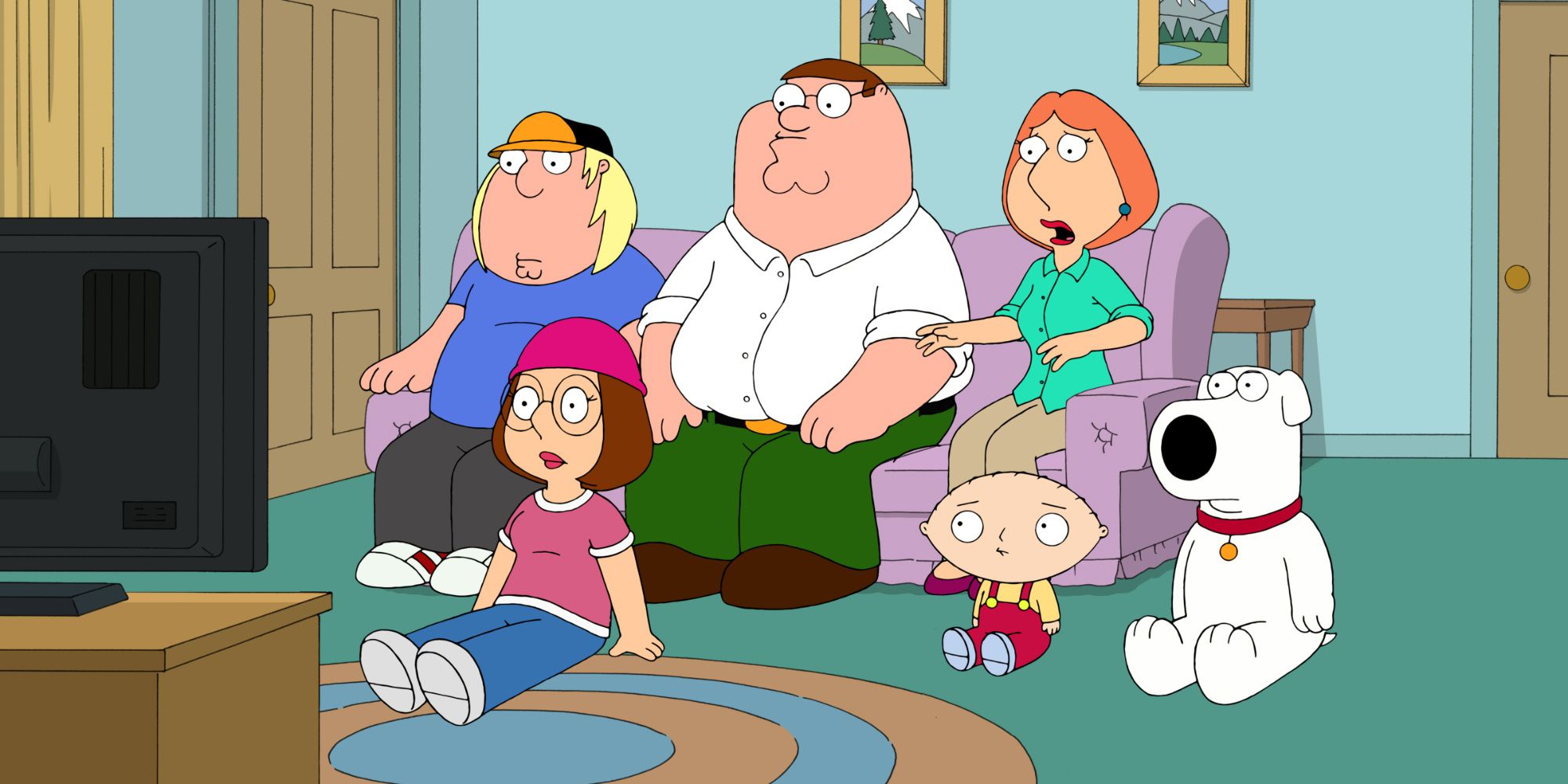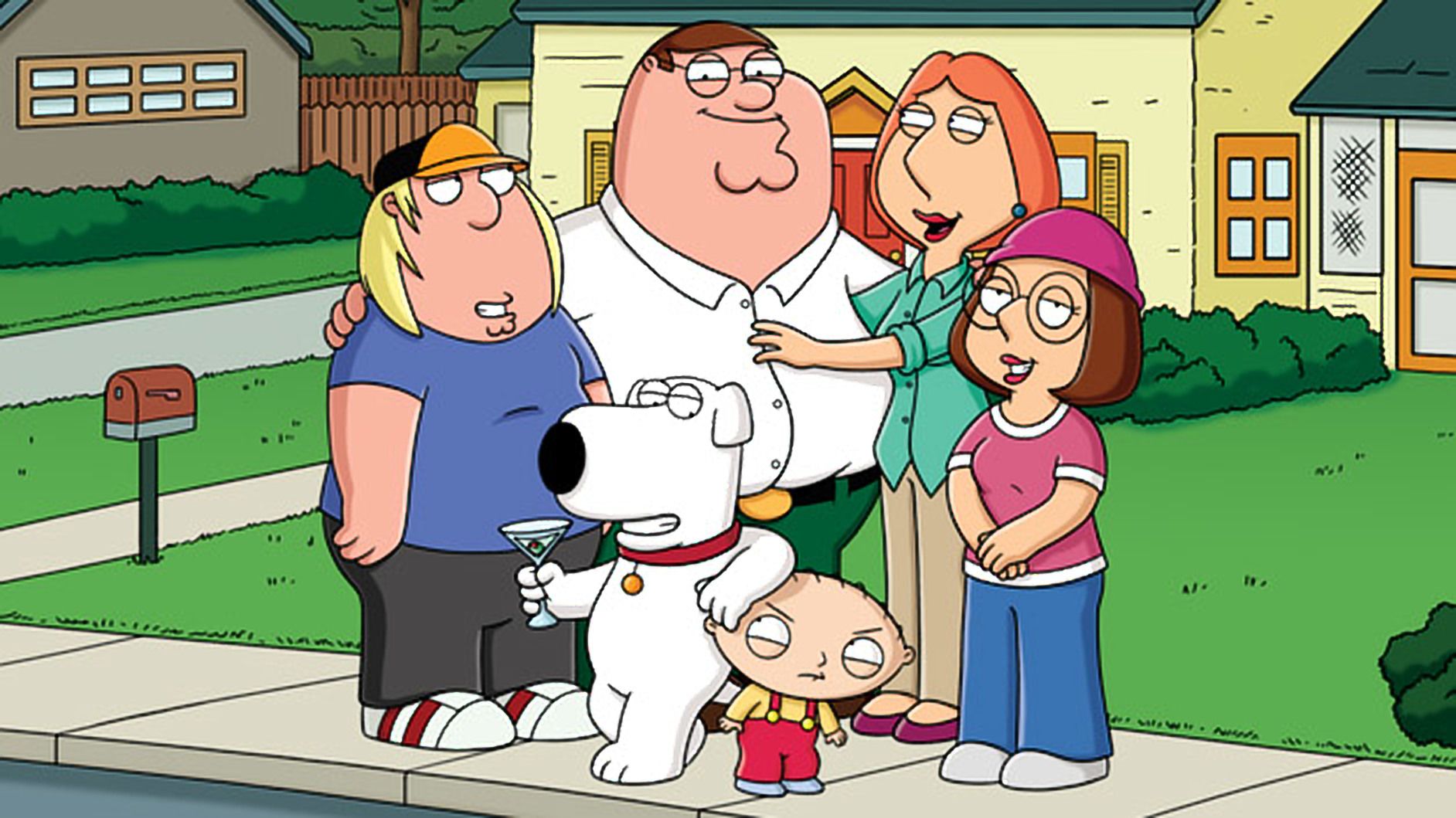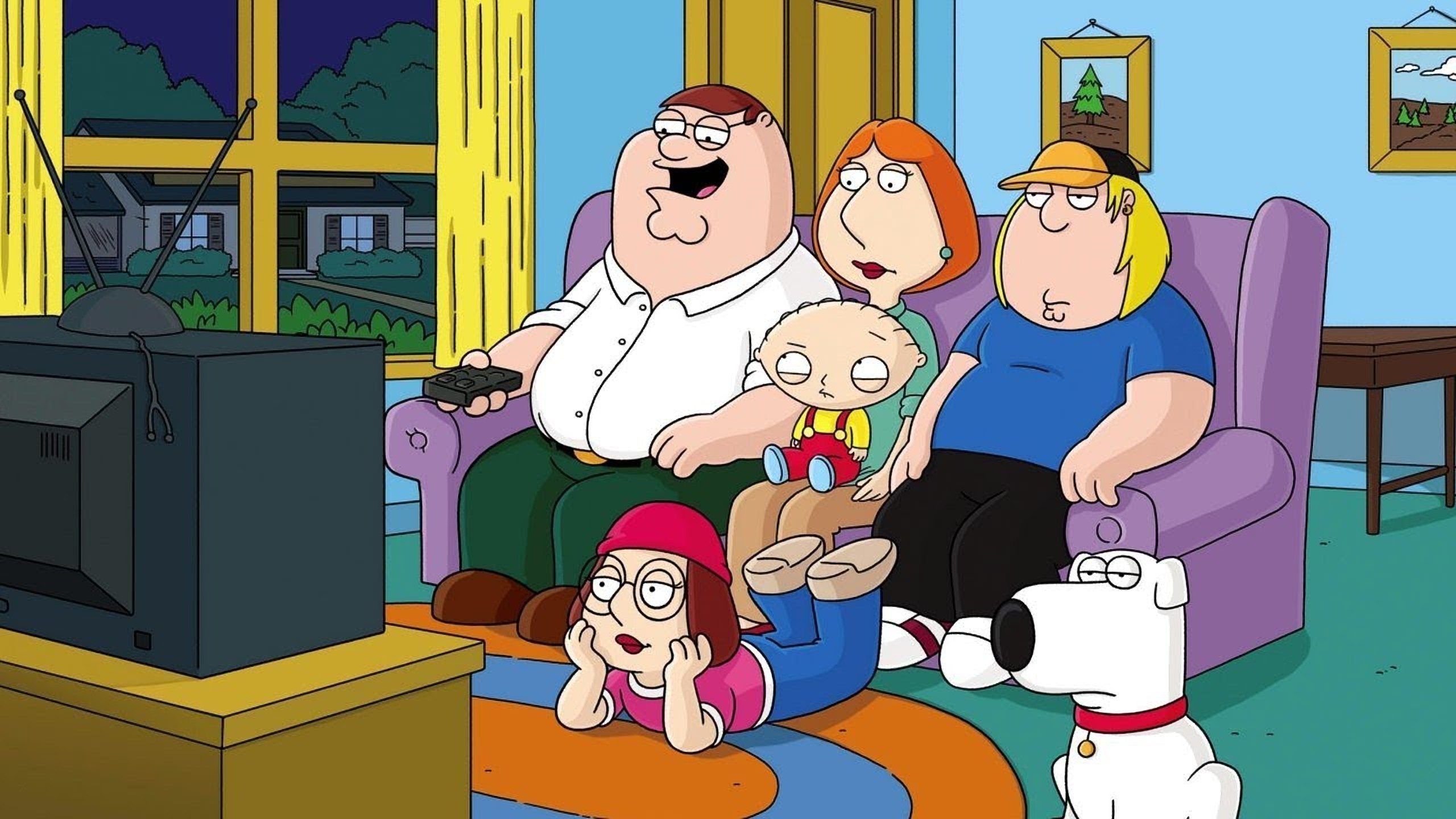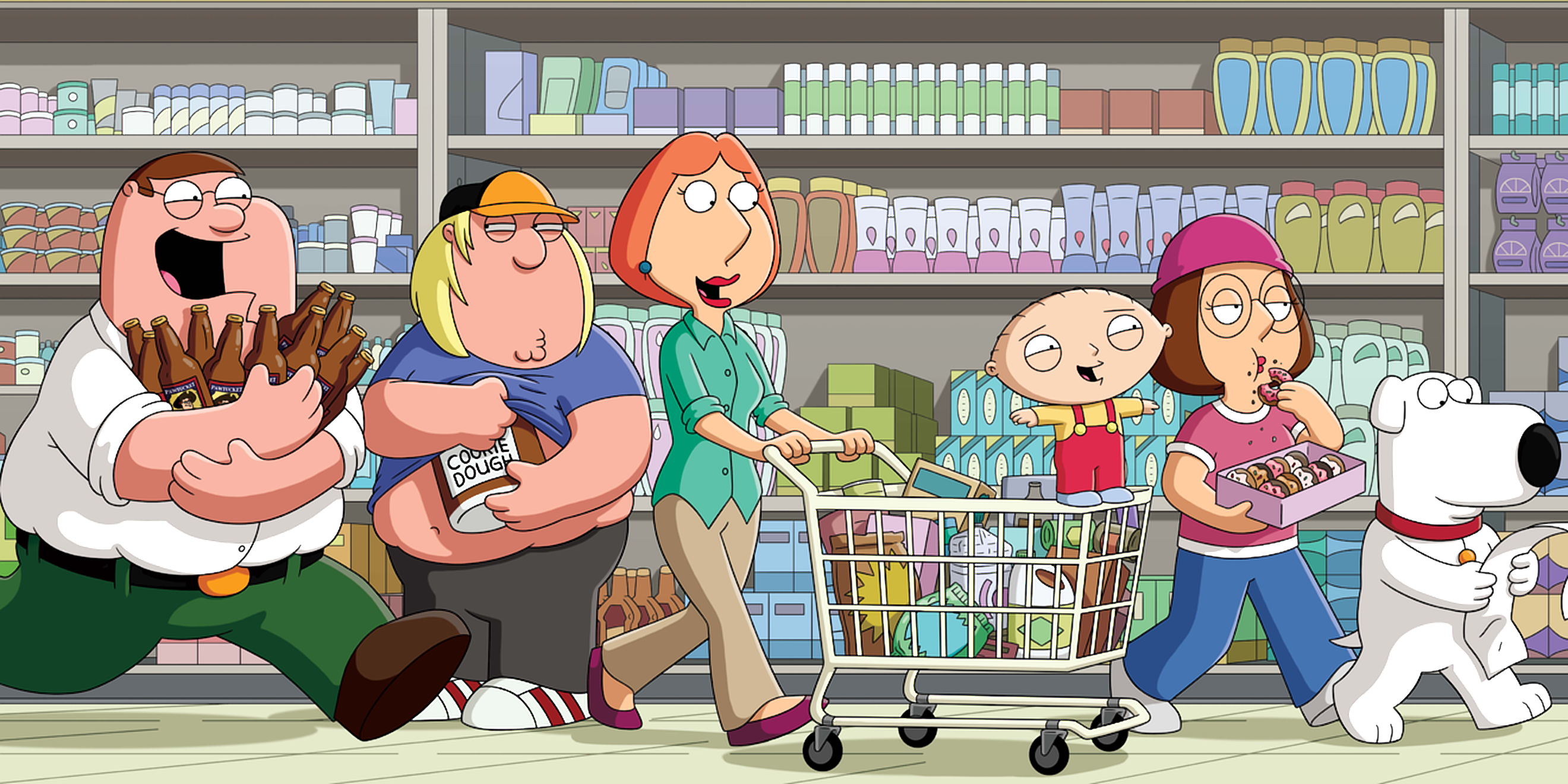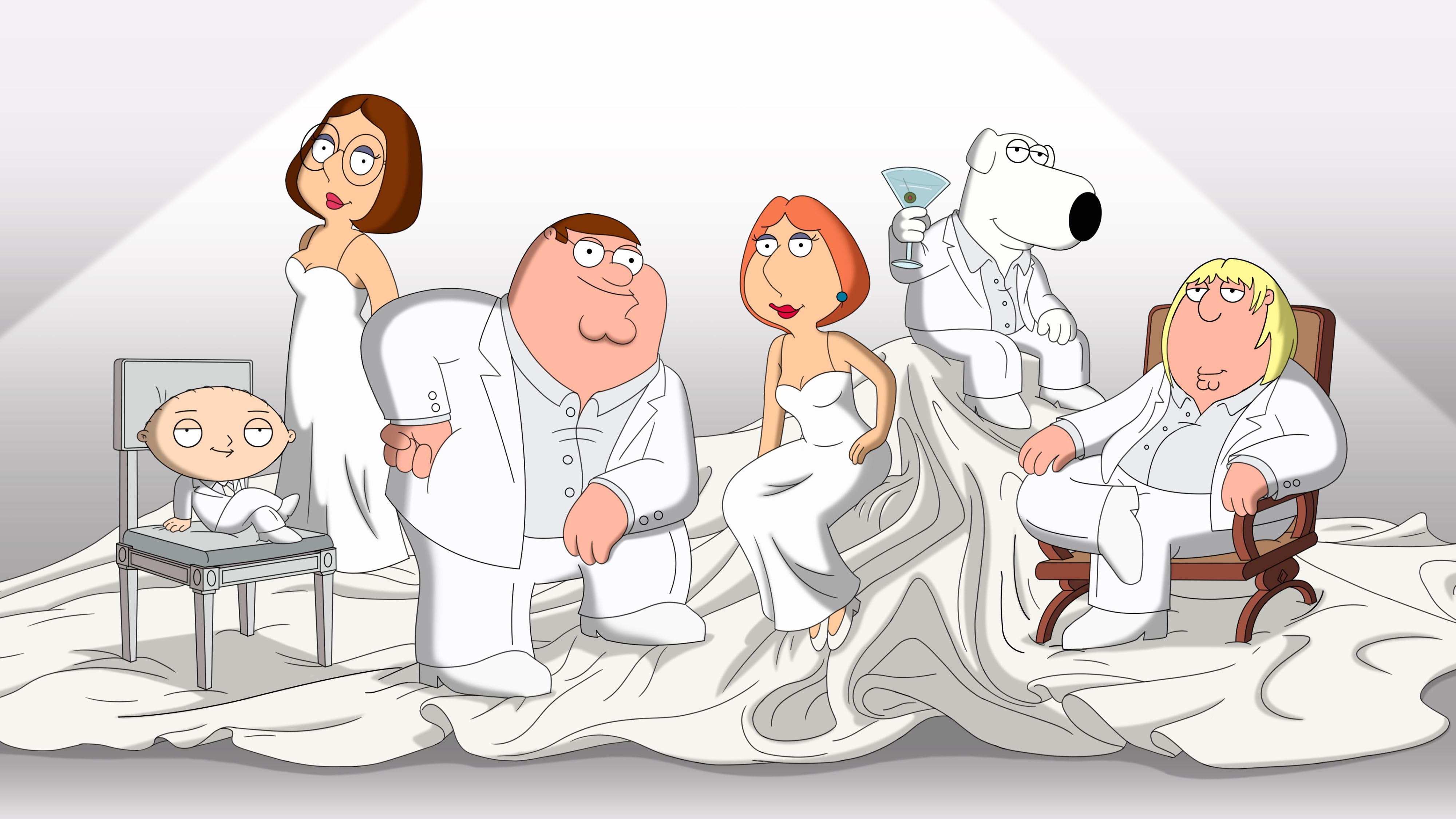Family Guy premiered in 1999 following Super Bowl XXXIII. The series quickly established itself as a parody of more traditional sitcoms, running for three seasons on Fox before being canceled in 2002. But before an era where television revivals were the norm instead of the exception, Family Guy became enough of a cult favorite that it was brought back to television screens in 2005 -- albeit, darker than before.
RELATED: How Stewie Griffin Became the Most Complex Character in Modern Animation
Now in its 17th season, Family Guy has become one of the longest running primetime series currently on television. In that time, the lives of the Griffin family members (Peter, Lois, Chris, Meg, Stewie and Brian) have gone through a number of drastic changes in tone, style and self-awareness. Looking back on the eve of the 20th anniversary of the series' premiere, Family Guy has proven to have one of the most unique histories of any modern television series.
Canceled To Cult Classic
The first season of Family Guy aired on Sunday nights and was paired with The Simpsons, leading the freshman year of the show to achieve high ratings. But it was moved to Thursday nights for the second season and ratings declined thanks to stiff competition in the time slot from massive hits like Survivor and Friends. The series was even almost canceled following the second year, but managed to survive into a third season.
By all accounts, that should have been the last we ever saw of the Griffin family. But two factors, previously unheard of in television, played a role in reviving the show. The first was that syndication rights for Family Guy were sold to Cartoon Network, which added reruns of the series to its Adult Swim block of adult-oriented programming.
RELATED: Family Guy Eulogizes Carrie Fisher's Character
The series was a huge success for the network, earning some of the highest-ratings of any show on the channel. This exposure helped push the other driving factor behind the revival of the series: DVD collections of the show. The first DVD volume of episodes sold 400,000 copies in the first month of release, going on to sell over 2 million copies.
After three years off the air, Family Guy was brought back by Fox in 2005 to huge ratings and increased awareness. But it didn't return the same as it was before.
Changing With The Times
The new version of Family Guy proved to be stranger and more unexpected then the previous run of episodes. The characters all gained an edge of cruelty to them and became broader versions of their earlier incarnations. The most obvious change saw the series defacto protagonist, Peter, go from a doofus Dad into a dangerous idiot, with most of the cast changing similarly in the process.
Peter also saw his role reduce over time, allowing more room for Stewie (who went from a mad genius to a surprisingly lonely but brilliant little boy) and Brian (who gained more of a personality, including some very notable flaws) to supersede him. The humor of the show followed suit. Many of the jokes were already considered sophomoric, but after it was revived, Family Guy seemed to double down on the surprisingly graphic violence and sexuality it now had leeway to get away with.
RELATED: Family Guy Pays Tribute to Adam West With Highlight Reel
Part of these changes stemmed from the departure of producers/writers Mike Barker and Matt Weitzman, who turned their attention to American Dad!, a new collaboration with creator Seth MacFarlane. Another new aspect of the show was the changing sense of humor. Always dark and leaning into the surreal, Family Guy increasingly focused its attention into shock humor, upping the number of cutaway gags utilized during the show and turning episodes into less complete stories.
It also found itself at the center of the cultural conversation and was regularly criticized and mocked by other shows like The Simpsons and South Park. All of this left amore bitter tone than it had before, with much of the humor becoming harsher. This is the period where The Simpsons called Peter Griffin plagiarism. Family Guy responded by having Quagmire assault Marge and kill her entire family.
Even within the show, the series took a harder edge then before, especially in regards to Meg Griffin. The oft-forgotten member of the family quickly became a cosmic punching-bag, the ultimate example of the changing tone of the series' humor.
NEXT PAGE: TV's Most Controversial Slowly Becomes Mundane
When Shocking Becomes Regular
By the time the series entered its 10th season, a new level of awareness seemed to set in. The show had become another piece of the Fox lineup, and not much else. While ratings dwindled, they never dropped to the point where it was in danger of cancellation again. But with that apparent complacency from Fox, the show grew more brazen.
The creators have experimented with format, sometimes turning Family Guy into an extended sketch routine, other times into a one-location extended dialogue between a handful of characters, and even into a full-blown "behind-the-scenes" episode. The series also gradually turned Stewie into a three-dimensional character, particularly with the episodes that paired him with Brian or moved him around the world. But none of that has ever brought the series back to its former popularity.
To make matters worse, other attempts to restore interest have backfired, most notably when the show killed off Brian Griffin and then revived him just a handful of episodes later. Attempts to approach more dramatic material, such as the (VERY) problematic arc where Quagmire learned to be supportive of his transgender father, who wanted to undergo gender reassignment surgery, fell flat. This story in particular was unsurprisingly and publicly decried by groups like GLAAD for its mockery of transgender people.
During this time, a third show by MacFarlane, this time a direct spinoff of Family Guy, was introduced. The Cleveland Show moved Peter's friend Cleveland to another city and gave him his own world to explore. However, the series was short-lived and Cleveland and his family have since returned to Family Guy. American Dad! meanwhile grew steadily more surreal, earning some critical acclaim before leaving Fox for the cable network TBS.
MacFarlane has since shifted his attention elsewhere, to both success (Ted), and failure (Ted 2, Six Million Ways To Die In The West). He even stars in a live-action love letter to Star Trek -- The Orville -- which is currently in its second season. Family Guy hasn't felt "important" in a while, although it has used that freedom to be more creative and less shocking just to be shocking.
In a sense, Family Guy hasn't been exactly Family Guy in over a decade. The series has reinvented itself, drastically changed in tone and even gained a certain level of self-awareness over the last two decades. It has proven to be surprisingly resilient, predicting the current TV landscape where a recognizable title and fan support can get a canceled series back on the air.
It's even shown that it can still produce thought-provoking episodes when it wants to (like Season 16's "Send in Stewie") or go full parody, as it did in the recent episode where Peter goes head to head with Donald Trump. No matter what you think of the show as a whole, it has managed to have one of the most unique lives of any television show ever produced.

